Fabrikator is a lightweight inventory forecasting app built specifically for Shopify merchants. It helps DTC brands prevent stockouts by analyzing sales velocity, lead times, and seasonality to generate timely restock suggestions.
With features like low-stock alerts, backorder support, and a clean, intuitive UI, Fabrikator makes it easy for lean teams to stay ahead of inventory needs without complexity.
However, while Fabrikator is great for early-stage planning, its limitations become apparent as your operations expand.
Where Fabrikator Falls Short
- Shopify-only: No support for other channels like eBay, Walmart, or Etsy, limiting multichannel expansion.
- No warehouse or multi-location support: Lacks stock transfer capabilities or warehouse-level inventory visibility.
- Limited bundling logic: Struggles with advanced bundles or shared components used across products.
- No fulfillment or order syncing: Doesn’t help manage shipments, returns, or order operations.
- Basic analytics: Focused on forecasting only, lacks deeper reports like COGS, inventory logs or product performance.
- Not scalable: As catalogs, SKUs, or teams grow, Fabrikator’s narrow feature set can become a bottleneck.
Here are the 10 alternatives to Fabrikator:
1. Sumtracker
Sumtracker is a Shopify-recommended inventory and order management platform designed for fast-growing, multichannel sellers. It handles real-time stock syncing, bundles, warehouse tracking, and purchase orders all in one place.
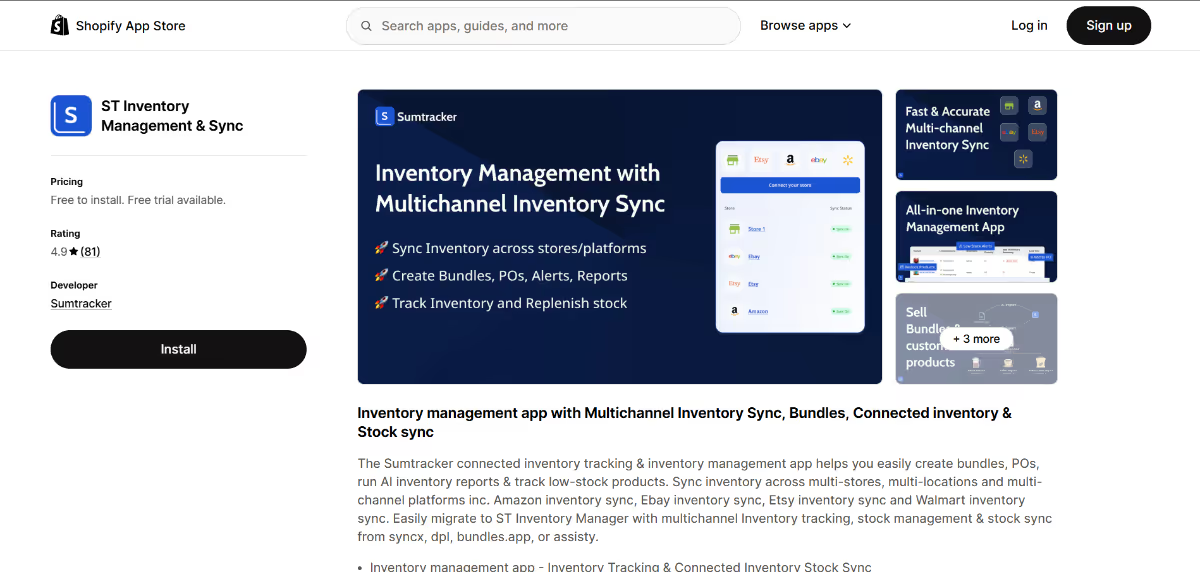
Key Features:
- Real-time inventory sync across Shopify, Amazon, Etsy, Walmart, etc.
- Support for bundles, kits, and shared components
- Purchase orders, supplier management, and restock alerts
- Multi-location warehouse tracking
Pros:
- Shopify-recommended app
- Easy-to-use interface
- Fast onboarding and responsive support
Cons:
- Forecasting not as AI-driven as Fabrikator
- Currently limited to English interface
Pricing: From $49/month. See full pricing options
Why it’s a better Fabrikator alternative:
Sumtracker offers comprehensive inventory + order management with multichannel support, which Fabrikator lacks.
2. Inventory Planner by Sage
Inventory Planner is a robust forecasting and purchasing tool that works across platforms like Shopify, Amazon, BigCommerce, and more. It’s tailored for larger or multi-store operations needing granular control.
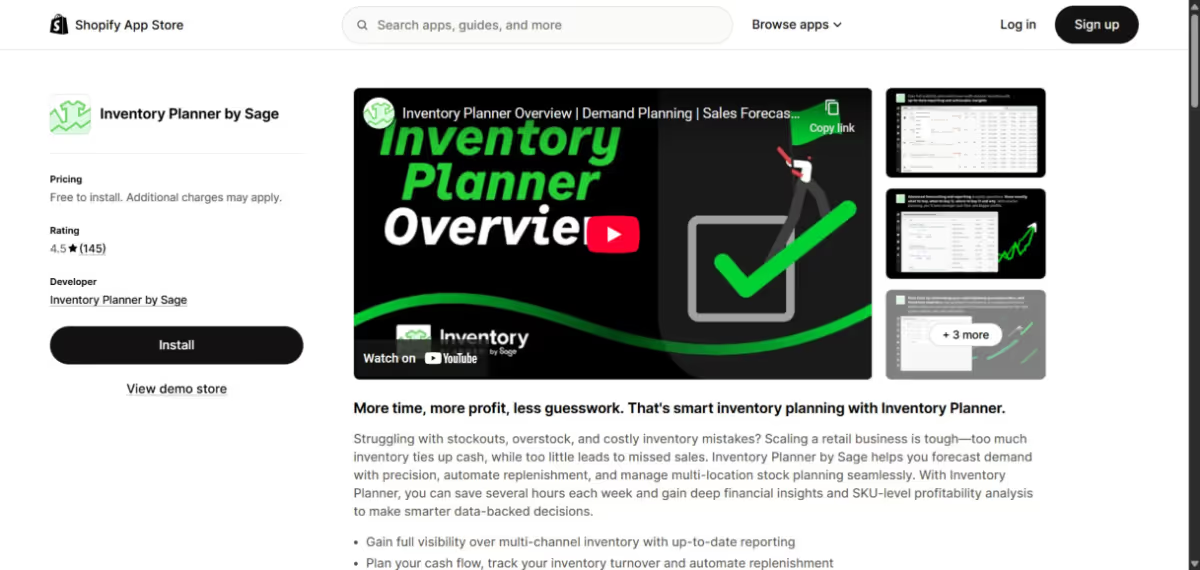
Key Features:
- Advanced demand forecasting with seasonality
- PO suggestions based on sell-through and lead times
- Multi-warehouse support
- Vendor performance analytics
Pros:
- Highly customizable forecasting models
- Deep analytics and insights
- Supports bundled and variant forecasting
Cons:
- Higher learning curve
- Expensive for smaller teams
Pricing: Custom
Why it’s a better Fabrikator alternative:
It offers richer forecasting depth, multichannel compatibility, and PO workflows, all missing from Fabrikator.
3. Cogsy
Cogsy is built for DTC brands that want smarter planning aligned with revenue goals. It goes beyond inventory to connect inventory planning with marketing, sales, and growth forecasts.
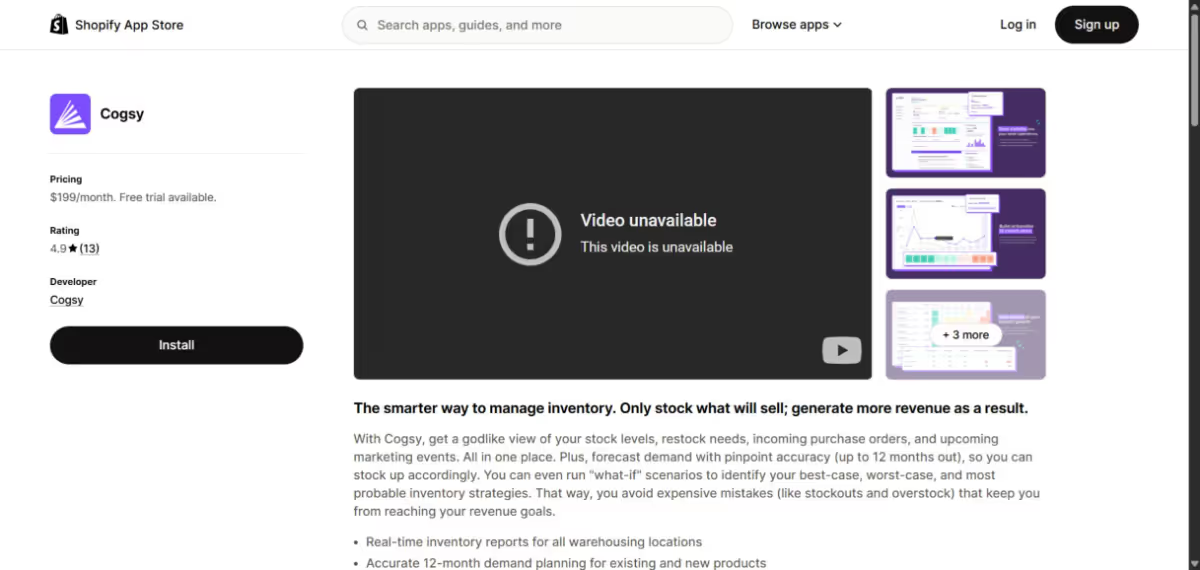
Key Features:
- Inventory forecasting tied to growth goals
- Restock planning based on profit margins
- Backorder handling and sell-through insights
- Scenario planning and revenue projections
Pros:
- Great for brands running promos or scaling fast
- Focus on profitability, not just stock levels
- Lightweight and user-friendly
Cons:
- No warehouse or shipping features
- Pricing is custom and higher than basic tools
Pricing: From $199/month
Why it’s a better Fabrikator alternative:
Cogsy provides goal-based forecasting and margin-aware restocking, which Fabrikator lacks.
4. Katana Cloud Inventory
Katana is a manufacturing-focused inventory platform that helps brands manage raw materials, production workflows, and finished goods inventory all in real time.
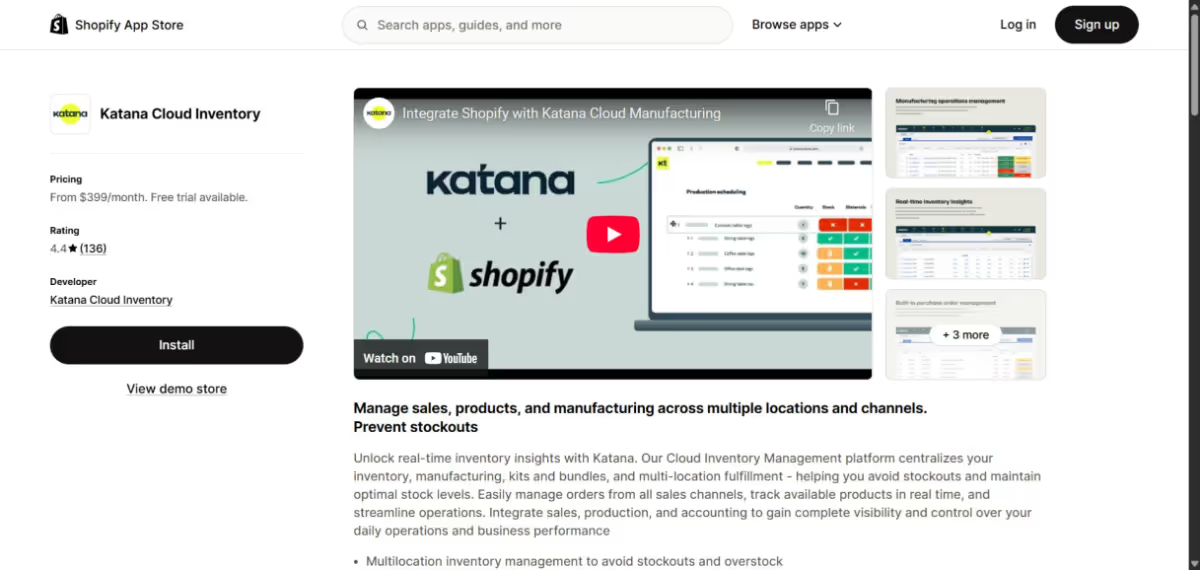
Key Features:
- Bill of Materials (BOM) and shop floor planning
- Raw material tracking and production costing
- Real-time stock visibility
- Shopify, WooCommerce, QuickBooks integrations
Pros:
- Excellent for brands that make their own products
- Combines inventory + production in one
- Visual UI for workflows
Cons:
- Expensive for smaller brands
- Limited marketplace integrations (e.g., Amazon, Etsy)
Pricing: From $349/month
Why it’s a better Fabrikator alternative:
For makers and manufacturers, Katana covers the entire product lifecycle, not just stock alerts.
5. Craftybase
Craftybase is a lightweight but powerful solution for handmade and artisan brands. It focuses on tracking raw materials, recipes, and production batches.
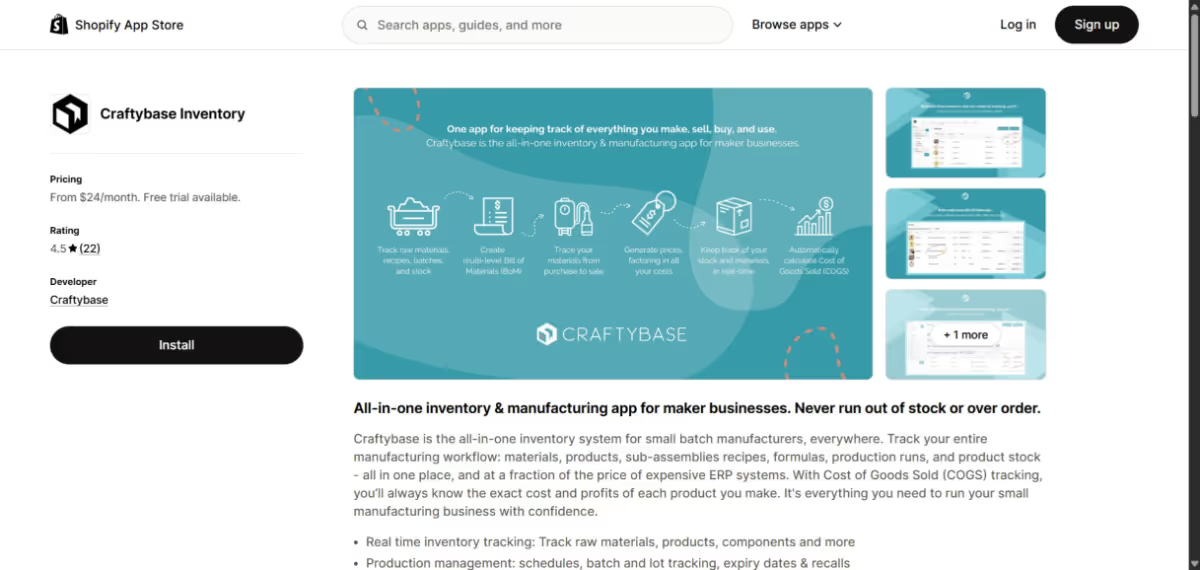
Key Features:
- Raw material + product recipe tracking
- Batch production logs
- Real-time inventory valuation
- COGS calculation and compliance reporting
Pros:
- Built for handmade sellers
- Affordable and easy to set up
- Great for Etsy, Shopify, and microbrands
Cons:
- Not ideal for large catalogs or wholesale
- No multichannel syncing
Pricing: From $24/month
Why it’s a better Fabrikator alternative:
Craftybase offers production tracking and COGS visibility, which Fabrikator doesn’t support.
6. Finale Inventory
Finale Inventory is built for high-volume multichannel sellers and warehouse operators. It includes everything from barcode scanning to kitting and mobile stock audits.
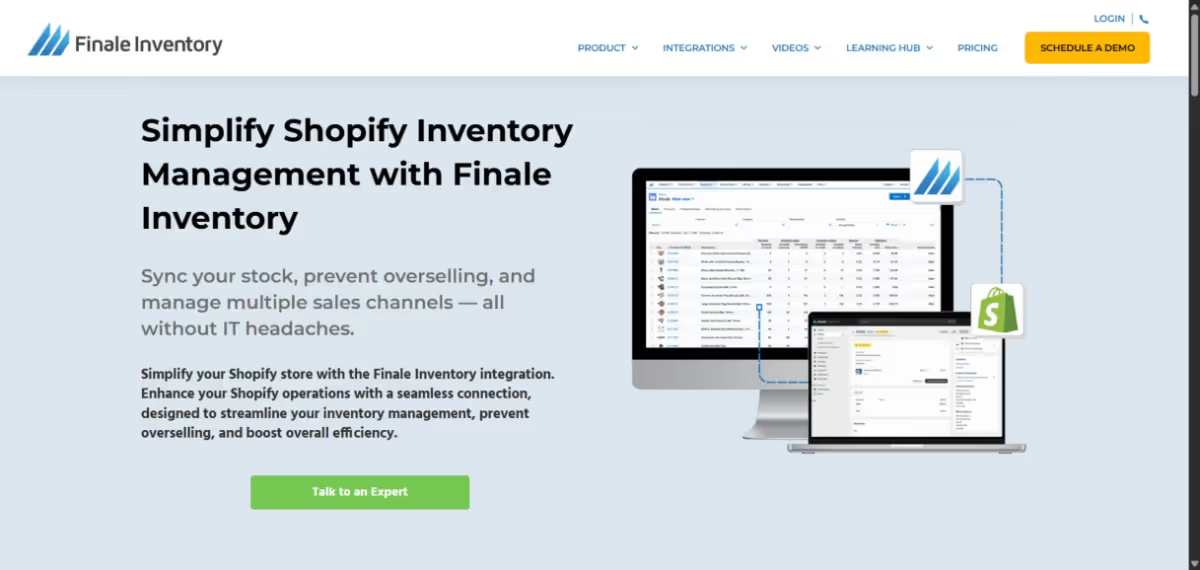
Key Features:
- Barcode inventory and mobile app
- Multi-location tracking and stock transfers
- Kit and bundle management
- Native integrations with Shopify, Amazon, eBay, and more
Pros:
- Very scalable
- Robust warehouse functionality
- Offline-capable mobile scanning
Cons:
- Outdated UI
- Requires setup help for full customization
Pricing: From $99/month
Why it’s a better Fabrikator alternative:
Finale supports warehousing, scanning, and high-SKU complexity, areas where Fabrikator falls short.
7. Unleashed Software
Unleashed is ideal for B2B, wholesale, and manufacturing brands that need batch-level tracking, landed cost management, and supply chain control.
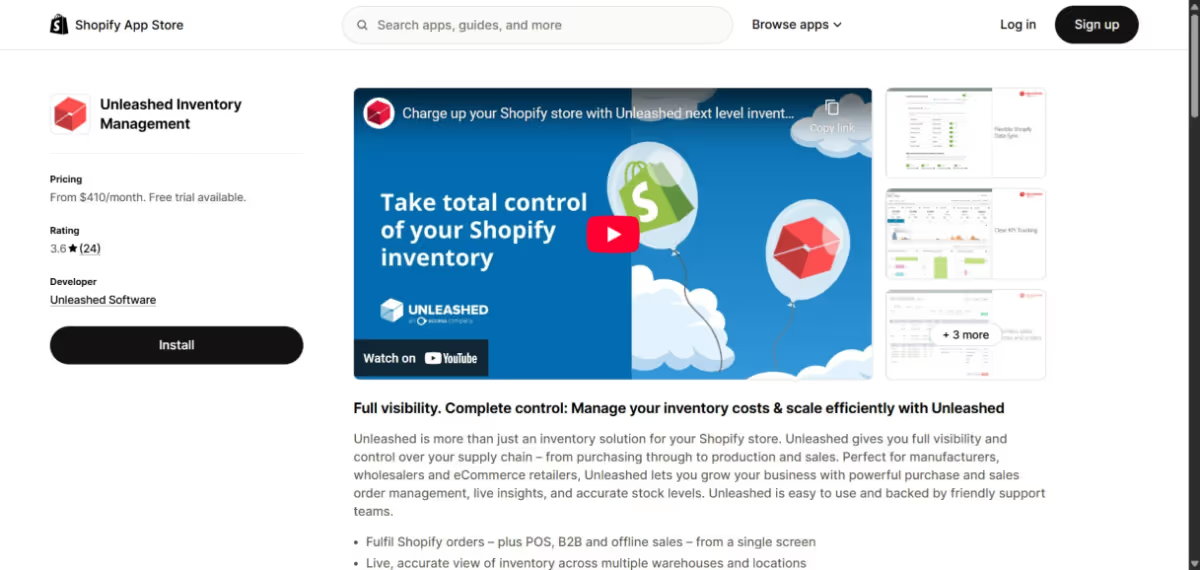
Key Features:
- Batch and serial number tracking
- Multi-currency supplier pricing
- Sales and purchase order workflows
- Integrates with Xero, QuickBooks, Shopify
Pros:
- Strong B2B support
- Detailed traceability
- Cloud-based and customizable
Cons:
- Steeper learning curve
- Overkill for DTC-only brands
Pricing: From $410/month
Why it’s a better Fabrikator alternative:
Unleashed offers deeper supply chain controls and traceability, which Fabrikator doesn’t.
8. Cin7 Core (formerly DEAR Systems)
Cin7 Core is a feature-rich platform offering ERP-like inventory, accounting, and B2B order management, ideal for mid-sized to large businesses.
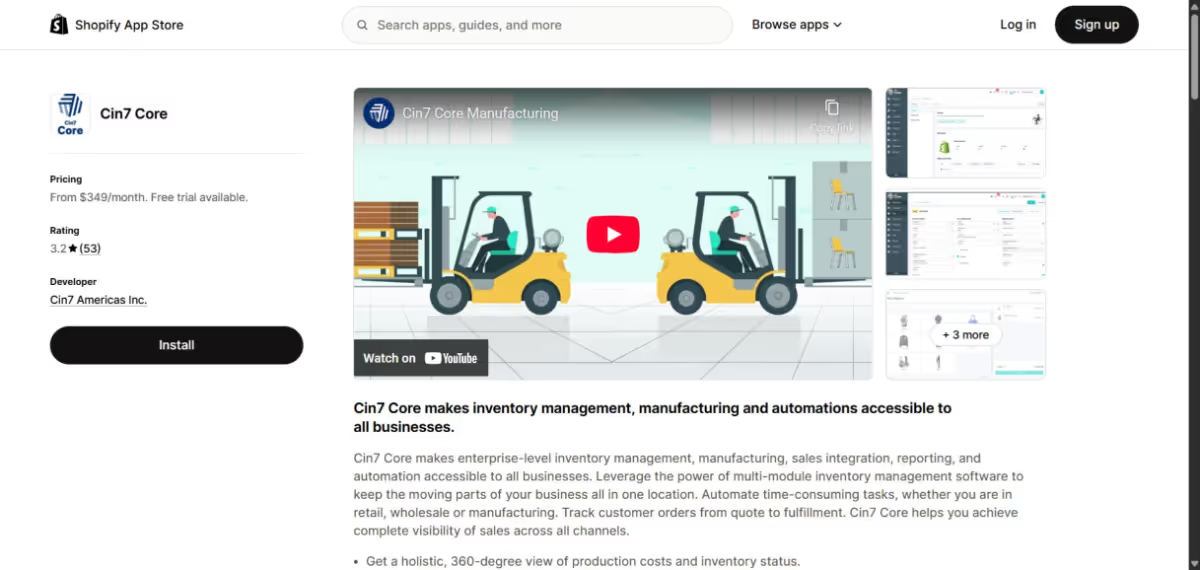
Key Features:
- End-to-end inventory, PO, and sales orders
- B2B portal and dropshipping support
- Accounting and warehouse integrations
- Shopify, Amazon, and Xero sync
Pros:
- Full suite for complex operations
- Excellent multi-location and channel support
- Automation-ready
Cons:
- Can be overwhelming for small teams
- Premium pricing
Pricing: From $349/month
Why it’s a better Fabrikator alternative:
Cin7 Core is a complete ERP-style inventory system, far more powerful than Fabrikator.
9. Zangerine
Zangerine is designed for wholesalers and distributors who need catalog management, CRM tools, and inventory control all in one platform.
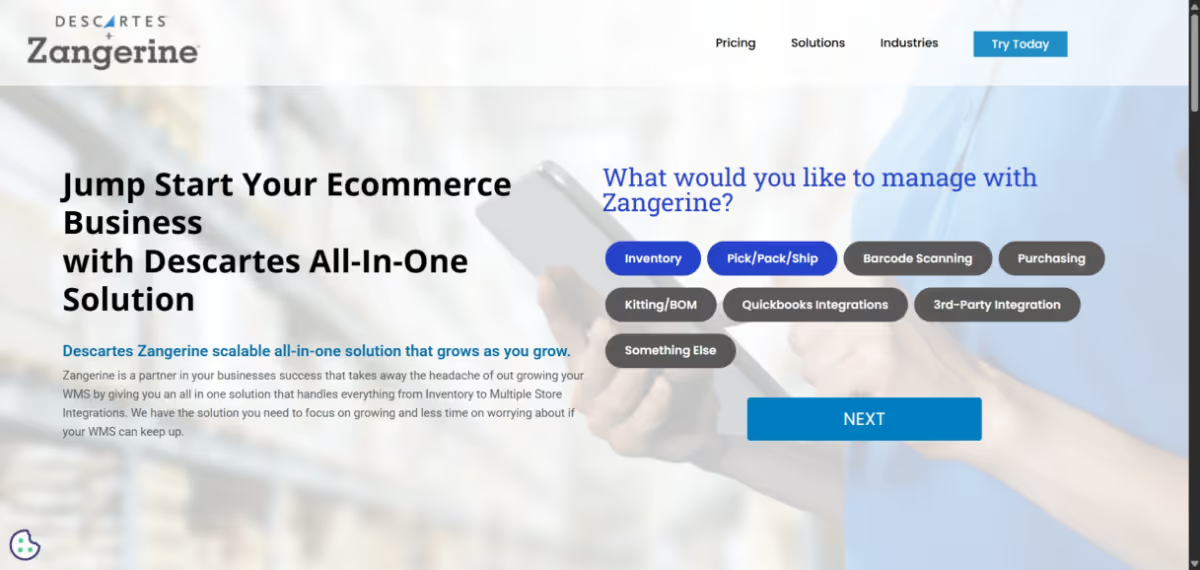
Key Features:
- Quoting, dealer portals, digital catalogs
- CRM and sales rep tools
- Inventory and warehouse tracking
- B2B eCommerce support
Pros:
- Strong B2B and wholesale features
- Streamlined for sales reps and quoting
- Good customization options
Cons:
- UI less polished
- Less suited for DTC
Pricing: From $99/month
Why it’s a better Fabrikator alternative:
Zangerine is great for wholesale operations, which Fabrikator doesn’t cater to.
10. NetSuite ERP
NetSuite is Oracle’s cloud ERP that offers advanced inventory, finance, HR, and CRM tools ideal for large enterprises or fast-scaling businesses.
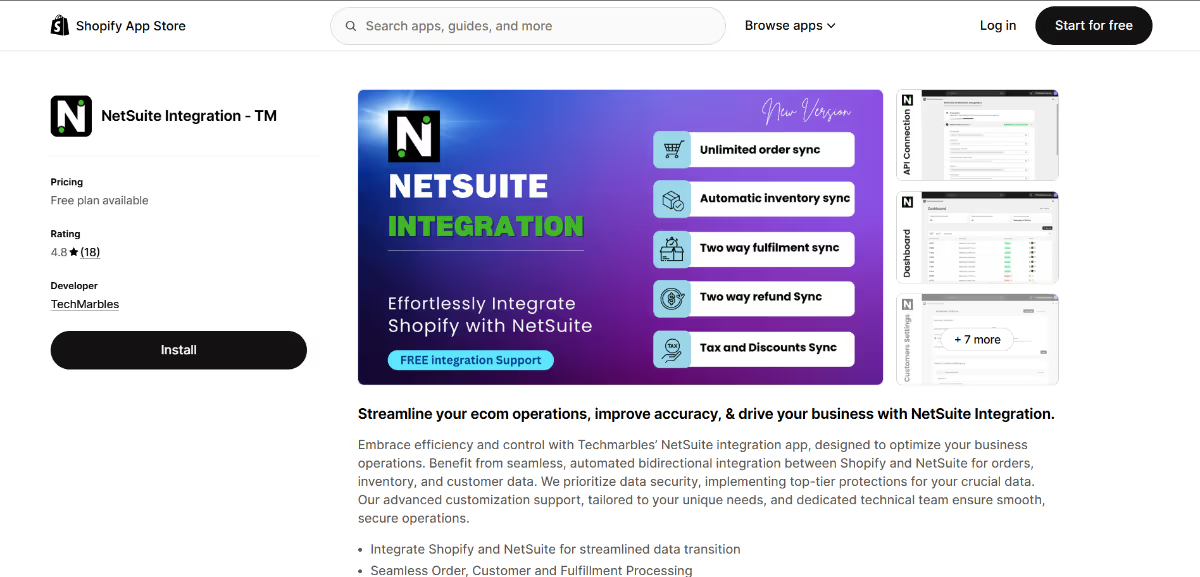
Key Features:
- Centralized ERP with inventory, finance, and fulfillment
- Demand planning and forecasting
- Real-time dashboards and analytics
- Integrates with Shopify and 3PLs
Pros:
- Enterprise-ready scalability
- Highly customizable
- Unified data across functions
Cons:
- Very expensive
- Requires implementation support
Pricing: Custom (typically $1,000+/month)
Why it’s a better Fabrikator alternative:
NetSuite is a true enterprise-grade solution, whereas Fabrikator is better suited for startups and SMBs.
Conclusion
Fabrikator is an excellent lightweight forecasting tool for Shopify merchants especially those just starting out or looking to avoid stockouts with minimal complexity.
But as your brand scales, its limitations in multichannel support, purchase order management, bundling, and warehouse visibility can quickly become roadblocks.
Fortunately, there’s no shortage of powerful alternatives. Whether you're a handmade seller needing to track raw materials, a DTC brand prioritizing profitability, or a wholesale business managing multiple warehouses and sales channels, there’s a tool built for your specific workflow.
If you’re looking for a well-rounded and affordable replacement, Sumtracker is a top pick especially for growing brands that sell across Shopify, Amazon, Etsy, and more.
Take time to evaluate your business model, tech stack, and growth trajectory and choose an inventory solution that scales with you.
Try Sumtracker — the all-in-one inventory and order management tool built for modern DTC and multichannel sellers.
Conclusion
Ready to Simplify Your Inventory Management?
Join hundreds of e-commerce merchants who rely on Sumtracker to save time, eliminate errors, and grow their business.
.svg)



.png)